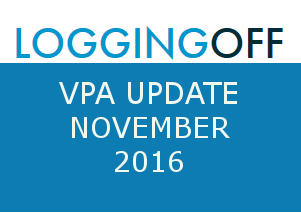
This is the Liberia update for Forest watch special: VPA update November 2016.
Official VPA status: in implementation since 2013
Like Indonesia and Ghana, Liberia is the third country where the VPA process is moving forward and may lead to FLEGT licenses in the not too distant future. As previous updates have noted the process has been transparent and inclusive. Liberia’s NGO coalition still sees the VPA as ‘the only game in town’ to address the global problem of illegal logging.
The fourth and most recent JIC just concluded in Monrovia in October. This JIC was, however, seen by many participating as a disappointment because implementation is slow; there was no real discussion and too much time was taken up by presentations by other donors such as the World Bank and GIZ, without linking these clearly to the work of implementing the VPA. The ongoing issue of the debarment list was not put on the agenda but CSOs intend to make this a key issue for the next JIC.
To speed up the implementation process parties have now agreed to an implementation plan, with clear milestones that will be adopted before the end of the year, and which will be reviewed at the next full JIC in March 2017.
With elections looming the future for VPA implementation is uncertain. It may well be that the new President and a new House of Representatives will have fewer vested interests and move forward quickly with enforcing the required governance reforms, but the opposite could also be true and is maybe more likely. This year the Forestry Ministry (FDA), the Ministry of Justice and the Liberia Revenue Authority have become more actively involved in VPA implementation, a positive development. Whether this involvement will continue after elections is uncertain.
The 120 Community Forest Management Areas (CFMAs) that are in the process of being created could pose perhaps the largest threat to Liberia’s remaining forests. The area under discussion comprises most of the country’s remaining forests. Although CFMAs are meant to provide benefits to the communities and to be run by the communities, this will only materialise if there is sufficient oversight from the Government. Ensuring the allocation and oversight of the development and implementation of the CFMAs is a key task for CSOS and Government. Only a few CSOs have started to work with the Community Forest Management Bodies (CFMBs) to educate them about their legal rights (including that 50% of the benefits should go them). Finding a middle way between industrial logging and strict conservation is difficult.
There are, however, many positive developments worth mentioning. The Government made clear that conversion timber from agriculture or mining concessions will not be allowed into the chain of custody system and/or exports. Hence, no new regulation is planned at this stage. The FDA stated that the quantity of timber from conversion should be limited given that palm oil concessions should not deforest due to their commitments to Roundtable for Sustainable Palm Oil (RSPO) and Tropical Timber Alliance2020, and mining does not involve large areas anyway. Any unavoidable timber from conversion can be used locally and guidelines are being developed for this. Although CSOs see this as a victory, some others are concerned that by keeping this timber out of the chain of custody, it will actually create a loophole for illegal logging. More discussion may be needed to look at the pros and cons of including conversion timber in the VPA.
The intellectual property rights to the timber tracking system are claimed by the consultancies developing the systems, in this case SGS. To ensure the data generated by the system will be made available a deal has been made between DFID and SGS. While the software licensing remains the sole property of SGS, DFID has been given access to all the data. What remains unclear though is whether SGS will hand over the source code to DFID and the Liberian Government or whether the Government will forever remain in the pockets of SGS to maintain and adapt the tracking system.
The Impact Monitoring Working Group is ongoing and has presented its first report. Although it is under resourced, even collecting existing data and presenting them in a comprehensive way would already be a great step forward.
The National Benefit Sharing Trust (NBST) Board has disbursed $114,000 to three communities for use in their community and the Government highlighted that it has disbursed 1.25 million to the NBST for communities to use. It should be noted that despite this, the loggers are still in significant arrears on payments, including the Bid Premium money owed prior to the abolition of this payment. The abolition of bid premium has not yet been replaced by a mechanism to raise equivalent revenue for Liberia and its people.
Last, but not least, all CSO in Liberia hope and pray that the Land Rights Act (LRA) will still be passed in January. The Upper House (House of Senate) passed the Land Authority Actin April and awaits concurrence by the Lower House (House of Representatives). CSOs have written to relevant land and governance committees in the government to try to push for the LRA and the LAA to be passed. If they are not, it will become a major election issue. So Liberia is on the cusp of becoming the first country in West Africa where communities have full ownership of their land.
This is an entry from the latest Forest Watch special VPA update, an occasional publication by LoggingOff and Fern. The VPA update provides a roundup of developments across countries involved in VPA processes, from a civil society perspective. This edition is from November 2016.
